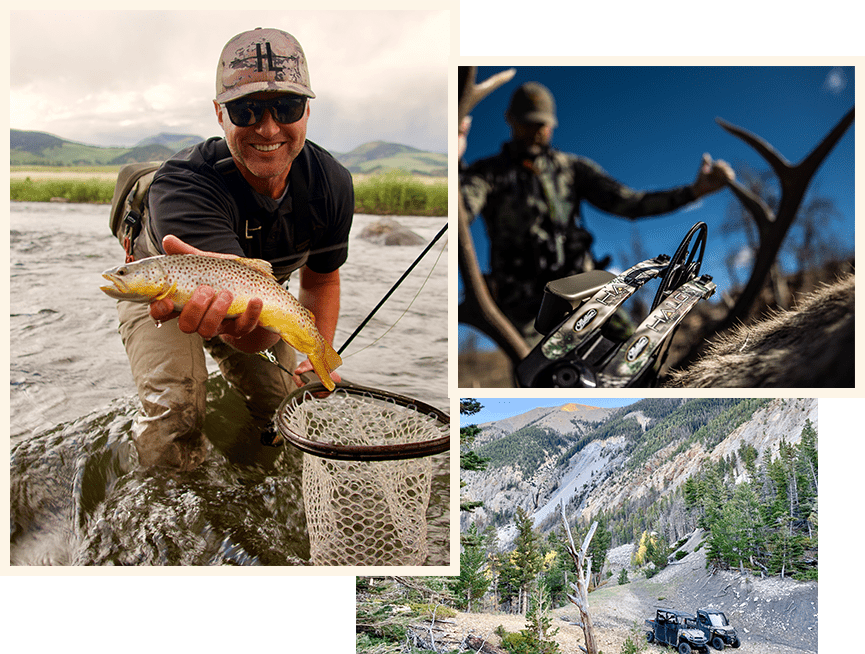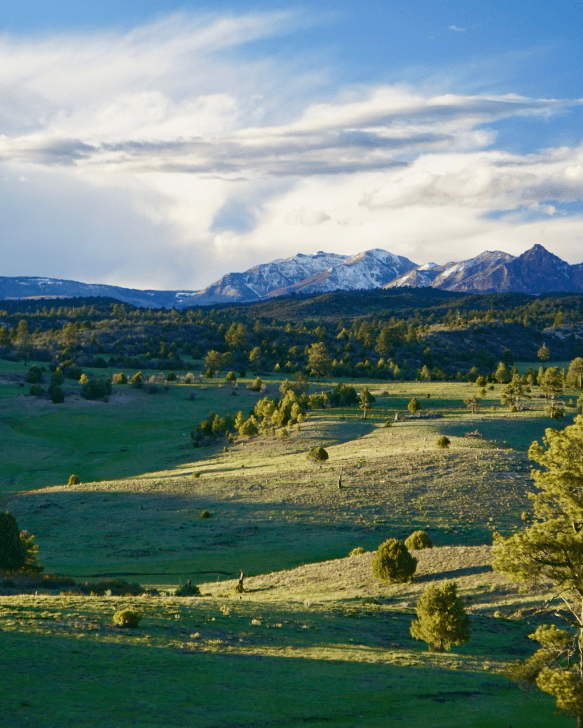Know the difference between farms and ranches when you begin your search for investment acreage, and make sure you choose the right option for you. If you plan to run livestock, or use your land as a hunting and fishing retreat, you’ll want a ranch. If you wish to grow and market crops, you’re better off being a farmer. Understanding what you wish to do with your land investment will help you decide between a farm and a ranch.
There’s no right or wrong answer for those looking at a farm vs. a ranch. It’s a subjective proposition. But buyers need to know what they want to do with the land they’re buying before they make an offer.
A ranch vs. a farm: what’s the difference?
Farms feed the world, quite literally. Ranches are plots of land used to raise livestock for market. But farms also feed livestock, which means, in the literal sense, ranches can be farms, too. But not all farms are ranches. Confused yet? Don’t worry. Let’s get to the bottom of this.
In basic terms, farms are plots of cultivated land that produce crops. Ranches, on the other hand, are farms that are geared toward raising cattle or sheep for commercial purposes. Often, ranches will, indeed, have a grown-in-the-ground product. Think hay or alfalfa, for instance. Usually, though, these “crops” are used to feed the livestock on the ranch.
But it’s more nuanced than that. Ranches, particularly in the West, also come with acreage that’s often “undeveloped,” or managed in its wild state for the benefit of wildlife, or for grazing livestock. Most farms take full advantage of available land and use it in crop rotation. Sure, there may be some undeveloped land, but, for the most part, the land is used in the growing operation.

Why invest in a ranch instead of a farm?
Let’s be honest, operating ranches and farms is hard work. Livestock need care. Farm and ranch equipment need constant maintenance. Outbuildings and shops need upkeep. And then there’s the farm or ranch house. It, too, requires some TLC to stay in top shape. In short, one isn’t any easier than the other. Workload shouldn’t factor into the equation.
In the West, though, big swaths of rural property don’t grow on trees. Western states are covered with public lands, which makes private land all the more valuable. And, in the modern economy, where things like tourism, recreation, hunting and fishing factor heavily into the equation, having quality land in its wild state that’s off limits to the majority of the public has value in and of itself.
Investors who love to hunt and fish may want to choose the ranch option. Certainly, they can still grow a hay crop and raise livestock. But having some quality fish and wildlife habitat on their property can enhance its value, both intrinsically and economically.
Ranches with quality wildlife habitat also have the option of leasing land or just leasing access to hunting and fishing guides and outfitters, or hosting sportsmen and women on their own and allowing them to fish ranch waters or hunt the ranch for deer, elk or pronghorn. This may be a more appealing proposition to investors who enjoy the outdoors than constantly monitoring commodity prices and planning when and what to plant.
Again, it’s totally up to the individual, but ranches, unless they are solely geared toward raising beef cattle or sheep for market and doing nothing else, offer their owners a bit more creative flexibility.
Final word
Investing in a farm vs. a ranch is a personal decision. For many, the notion of raising crops on a rotation and monitoring markets to ensure they’re planting the right commodity is rewarding work. For others, the idea of being able to hunt or fish on land they own without anyone else showing up is more their speed. And, being able to diversify a bit, and offer access or fishing and hunting privileges for a price is appealing.
Whatever the decision, know that either option requires serious effort once the investment is made. Farming and ranching are difficult professions, but they’re both incredibly important. Doing it right is vital. Doing it right and finding ways to enjoy the work should be the ultimate goal.


